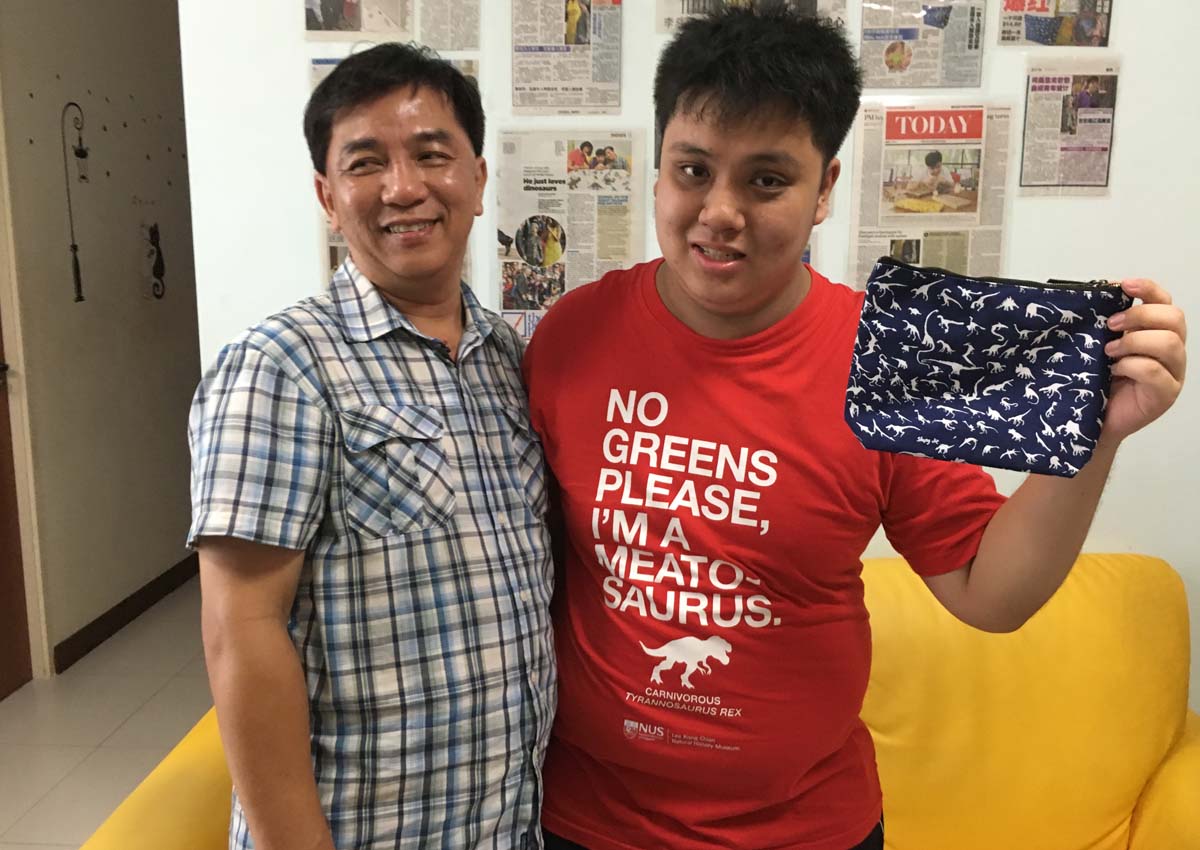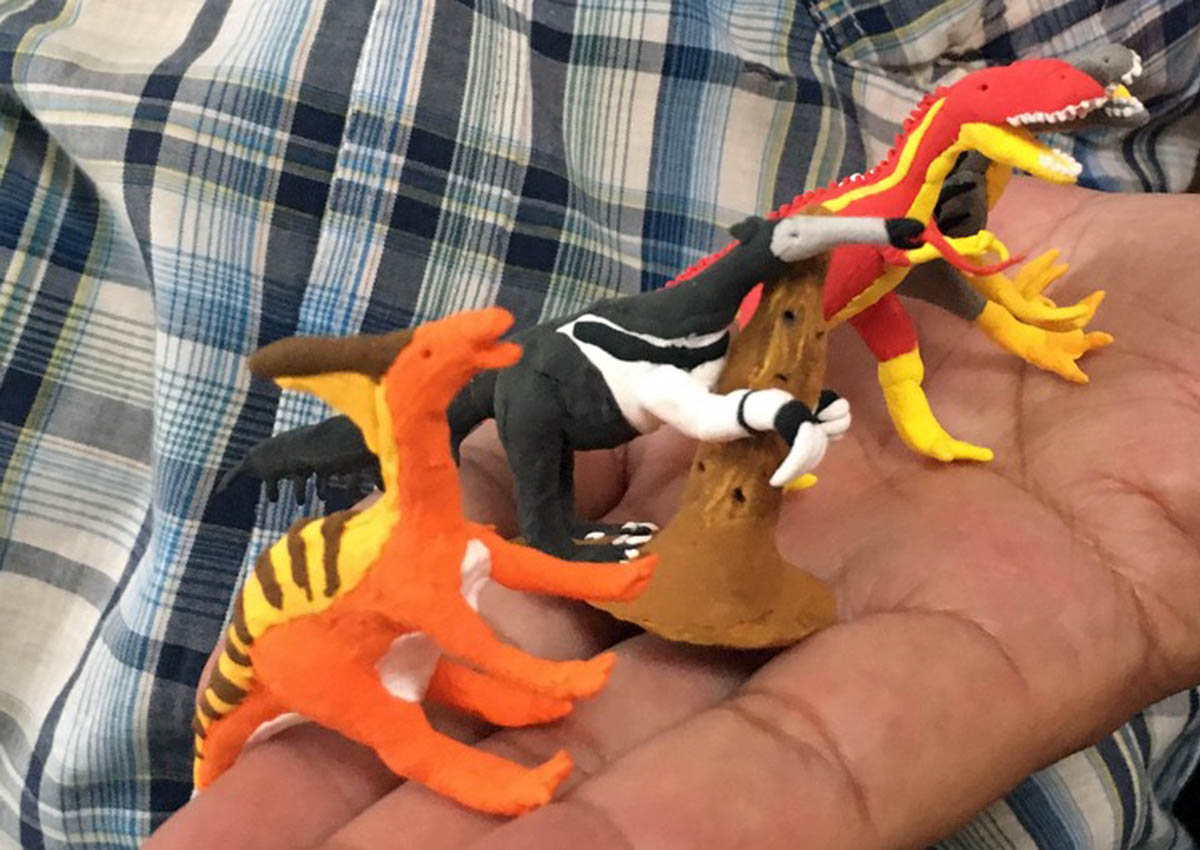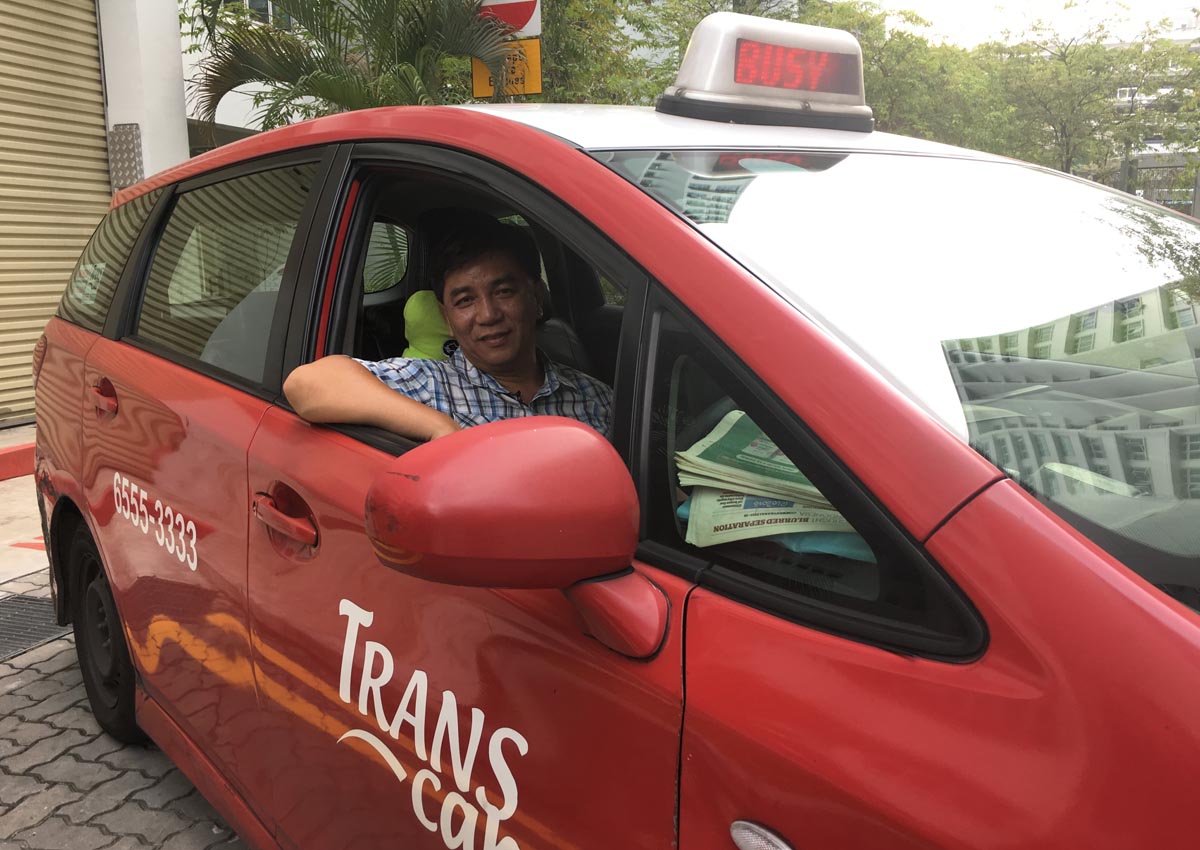ashikinr@sph.com.sg
For the past 12 years, Mr Jason See Toh has worked seven days a week as a taxi driver after pulling down the shutters at his renovations company.
Mr See Toh, 54, made the switch because the flexibility of the job gave him more time to care for his younger son, Mr See Toh Sheng Jie, 20, who has autism.
Singaporeans would remember Sheng Jie as the famous “dino boy” who made headlines in August when a denim pouch with a dinosaur motif that he had drawn and designed went to the White House, thanks to Prime Minister Lee Hsien Loong’s wife Ho Ching.
Mrs Lee carried the pouch when she accompanied Mr Lee on an official visit to the US.

Mr See Toh admitted that his hectic schedule can be “tiring”, but he keeps going to provide for his family and make time for Mr Sheng Jie.
He told The New Paper at his three-room HDB flat in Yishun: “He has autism so I need to accompany him wherever he goes.
“That was part of the reason for the job switch… In between shifts, I will spend some time to monitor his homework and so on.”
His wife, Madam Wendy Chua, 53, is a residents’ committee (RC) manager.
Every weekday, Mr See Toh sends Sheng Jie to Pathlight School in his Trans-Cab taxi by 8am before picking up passengers.
At 1.45pm, he will return to the school to have lunch with his younger son before taking him home.
He is off to work again at around 4pm before calling it a day at around midnight.
On Saturdays, he sets aside five hours in the afternoon to be with Sheng Jie when he goes for his art programme at the Enabling Village at Pathlight’s The Art Faculty and he spends some time with him after that.
Then it is back to work.
On Sundays, he tries to spend time with Sheng Jie, his wife and older son Sheng Yang, a 21-year-old full-time national serviceman, before driving his cab at night.
Sheng Jie was diagnosed with autism when he was five years old.
INTEREST
His deep interest in dinosaurs began after watching his first Disney film Dinosaur (2000). Later, he would mould dinosaurs out of Blu-Tack.

The family encouraged his artistic talent by providing him with materials like clay and sculpting tools, which he would use to sculpt multicoloured dinosaurs and animals with vivid details.
Hundreds are on display in a glass cabinet in the family’s living room and stored in plastic containers.
Sheng Jie also draws dinosaurs in a sketch book he always carries around and is a walking dinosaur encyclopedia, rattling off names, traits and descriptions despite his inability to verbalise his thoughts well.
“(His talent) is a gift and we are very proud of him. I suppose, when something is taken away from you, you gain something else,” said Mr See Toh.
He hopes the recent media attention on his son has further raised awareness of not just autism, but on other conditions as well.
“There are many children with great talents, not just in Singapore but all across the globe.
“I also hope that the public can be more empathetic towards special needs children,” he said.
When asked about his hopes for Sheng Jie, Mr See Toh admitted that he worries about his son’s future.
Next year will be Sheng Jie’s last year in Pathlight.
“We want him to learn to be more independent and perhaps, earn a living for himself.
“When we can find a place that provides that, we can plan the rest. Now we cannot plan for anything yet,” said the cabby, who said he might consider another job switch someday.
For Mr See Toh, the growing competition in the taxi trade and weakening economy means that the flexibility of his job comes at a financial trade-off.
He said: “I can safely say that there has been a decline of up to 40 per cent in passengers in recent years.
“Before this, in the renovation industry, my family can still cope, but times are getting tougher. I can’t just make enough to cover rental and fuel, which is about $140 daily.
“Don’t even talk about savings or retirement… It’s hard enough trying to cope with the essentials.”

This article was first published on October 24, 2016.
Get The New Paper for more stories.






